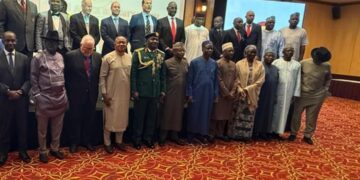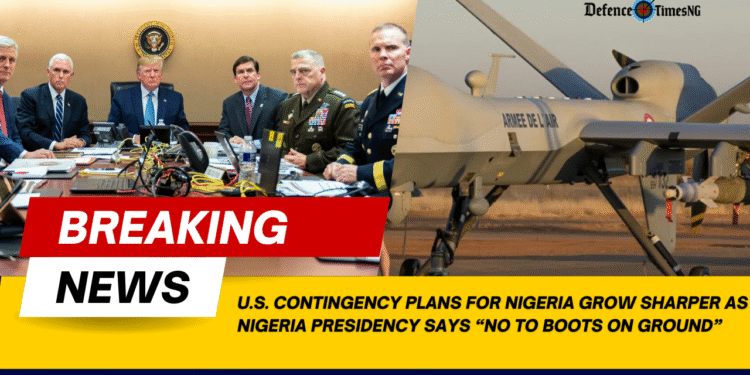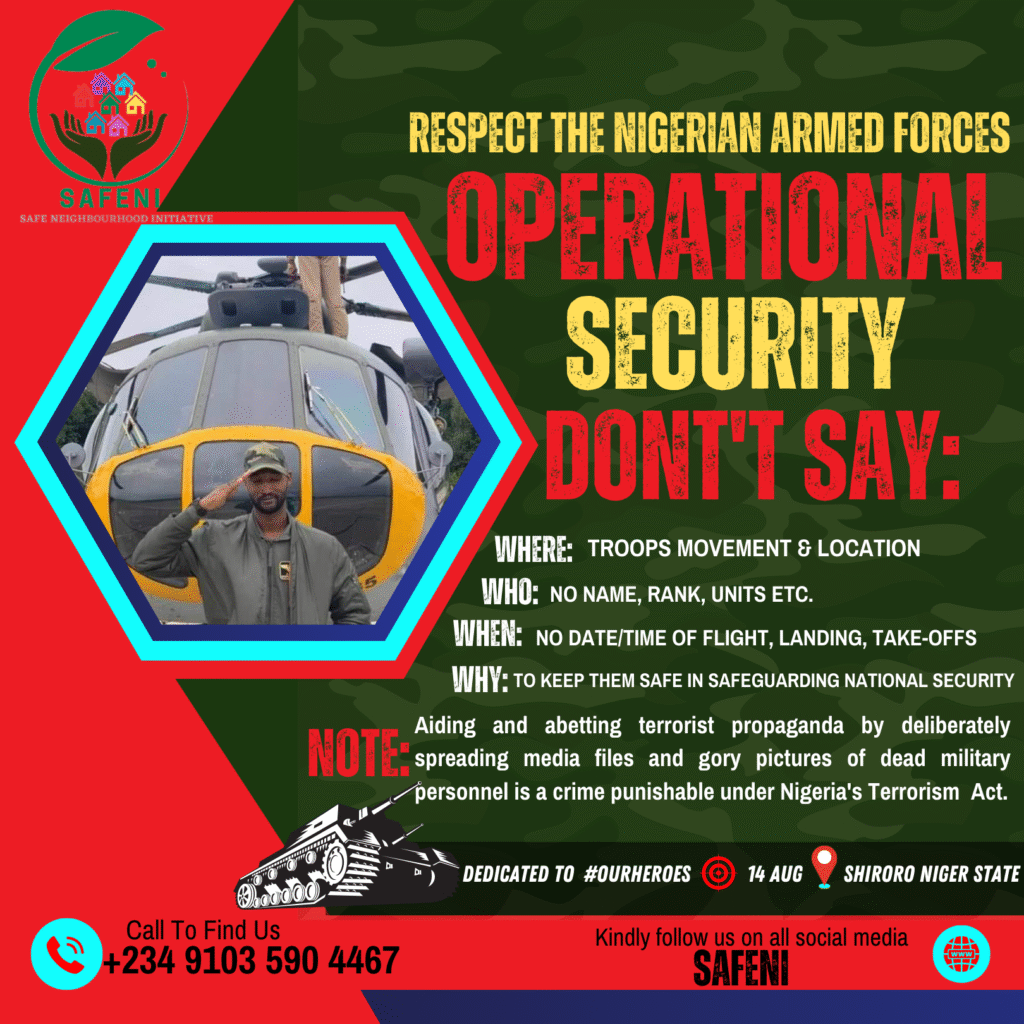As Washington evaluates military contingency options for Nigeria, Abuja has drawn a firm red line: no foreign troops on Nigerian soil. Recent reports indicate the U.S. Joint Chiefs have reviewed proposals ranging from precision drone strikes to limited joint raids, naval power projection, and special operations missions against terrorist networks in Northern Nigeria. But Nigerian authorities say the era of foreign boots on African battlefields is over — and Nigeria is not a candidate for intervention.
The Federal Government maintains that the situation, while complex, is firmly under control. Since assuming office in May 2023, President Bola Ahmed Tinubu has directed intensified kinetic and intelligence operations leading to the neutralisation of over 13,500 terrorists, 17,000 arrests, and the rescue of nearly 10,000 abductees across theatres. Officials argue that this record demonstrates capability, not collapse, and reinforces Nigeria’s sovereign right to shape its counter-terrorism strategy.
U.S. Defence Plans: From Drones to Carrier Power
Defence proposals reportedly reviewed in Washington include:
-
MQ-9 Reaper and MQ-1 Predator strike missions
-
Joint U.S.–Nigerian commando raids in rural insurgent strongholds
-
Aircraft-carrier and bomber assets on standby for escalation scenarios
-
Direct targeting of financiers, logistics chains & cross-border sanctuaries
The White House has not publicly confirmed any operational timeline. Strategic analysts note that these are contingency options, not imminent orders, but reflect an American doctrine increasingly focused on eliminating terrorism “at source”.
Nigeria Responds: Partnership, Not Presence
In a global interview this week, Daniel Bwala, Special Adviser to the President, affirmed that while Nigeria welcomes strategic cooperation with allies — it will not tolerate external troops operating independently on its soil.
“We do not need American soldiers on our soil,” Bwala said.
“Support us with intelligence, platforms and technology — yes. But respect our territorial integrity and sovereignty.”
This policy mirrors Nigeria’s position within the AU and ECOWAS defence architecture: collaboration, not occupation.
Narrative Battles & Security Realities
The U.S. interest follows pressure from advocacy groups claiming large-scale religious killings in Nigeria in 2025 — figures which Nigerian intelligence agencies describe as inflated, unverified, and potentially weaponised to frame intervention narratives.
Nigeria insists terrorism here targets all citizens, not a single faith, and warns against internationalising domestic insurgency messaging similar to Iraq, Syria, Venezuela, and Gaza, where narrative warfare preceded external action.
Africa Is Not a Theatre for Proxy Militarisation
Nigeria’s armed forces, now more equipped and intelligence-integrated than at any point since 2015, have pledged to continue offensive operations with:
-
Expanded ISR capacity
-
Increased joint-service special operations
-
Unmanned operations & precision strikes
-
Decentralised community intelligence and rapid response
Abuja is also deepening ties with ECOWAS, the AU, and multilateral intelligence networks, positioning itself as West Africa’s security anchor, not a passive beneficiary of foreign force projection.
Conclusion
Nigeria acknowledges that terrorism is a shared global threat — and welcomes technology, training, intel-fusion, and equipment support. But its message to foreign capitals remains unmistakable:
Support our fight; do not fight it for us.
U.S. contingency planning continues.
Nigeria’s sovereignty doctrine stands.
The battlefield is Nigerian territory —
The command is in Nigerian hands.








